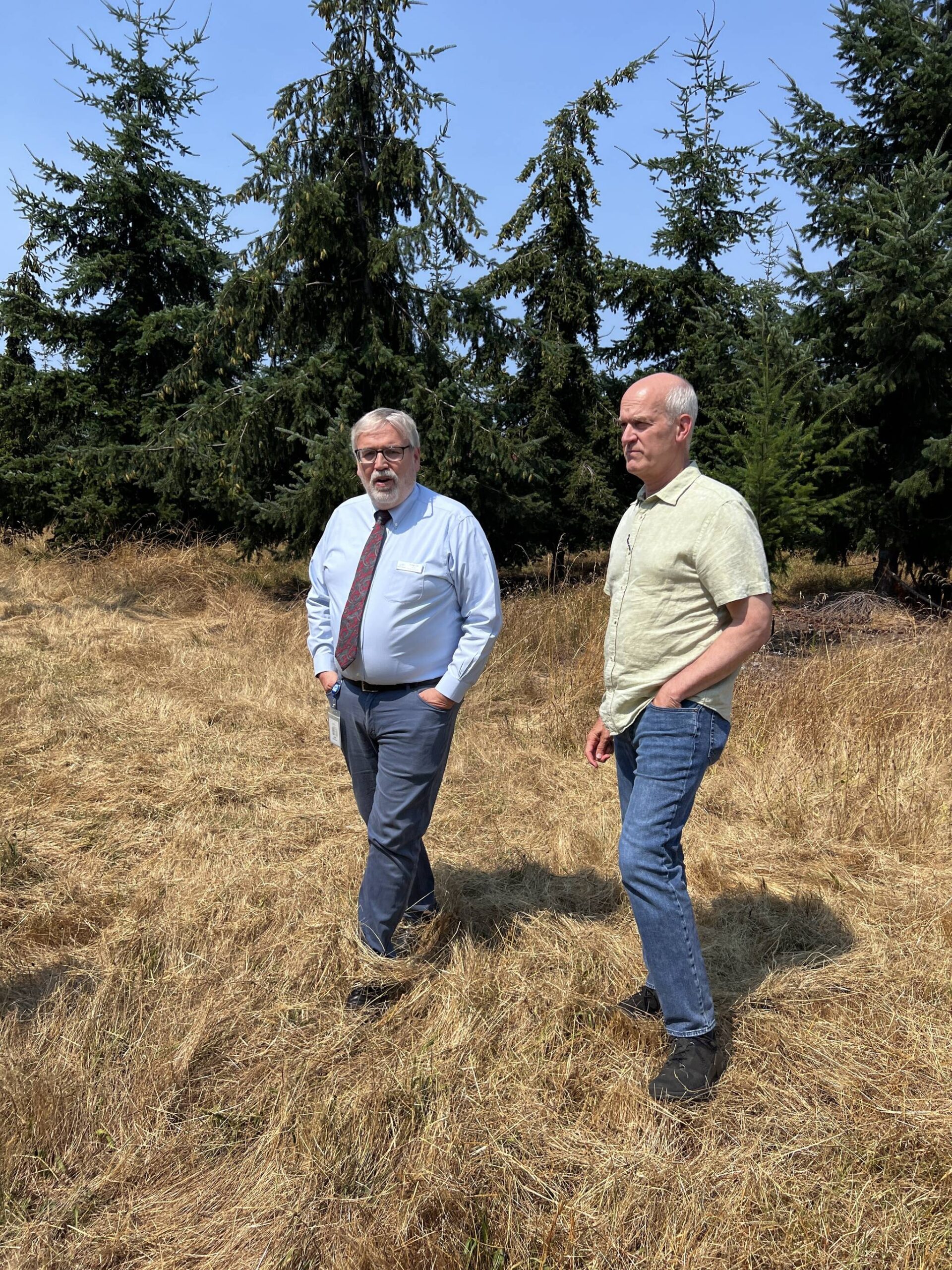Last week, U.S. Rep. Rick Larsen toured the Island Transit facility to discuss future developments and the transition to a zero-emission fleet.
Big changes are down the road for Island Transit, with a $14.96 million federal grant thanks to the Federal Transit Authority, or FTA, for 12 hydrogen fuel cell buses and infrastructure for its goal of zero emissions. The FTA also granted $7.53 million to engineer and construct a new transit center on South Whidbey.
In addition, massive expansions are underway for the Coupeville operating base, and five new hybrid vans are arriving this fall.
Larsen, chair of the House of Representatives transportation committee, has been instrumental in developing the pipeline for Island Transit to receive this funding, said Craig Cyr, Island Transit acting director.
Larsen said he looks forward to continuing the pursuit of a zero-emissions fleet.
“Island Transit is transitioning to a cleaner and greener fleet and building a new transit hub on the South Side,” he said. “I look forward to continue working with (them).”
Loading into the newly wrapped, electric paratransit van, Larsen and Island Transit staff ventured off to the Seed Tree Farm, 38 acres of land adjacent to the Coupeville operating base that Island Transit acquired from the Whidbey Camano Land Trust in December of last year.
“I did not expect Island Transit to become seed farmers, but here we are,” Cyr said.
The transit system will install solar panels on the north property, which will help with power outages that are common on the island.
The big-ticket item on the horizon is hydrogen, Cyr said, after the new electric vans underperformed. Right now, the organization is doing a “serious investigation” into the feasibility of buses powered by the most abundant element in the world that emit nothing but water vapor.
Currently, federal officials are discussing the creation of a regional clean hydrogen hub in Bellingham. Island Transit’s timeline for this fleet is dependent on identifying a viable fuel source, Cyr said.
The timeline for the South Whidbey transit center is similarly pending, Cyr said. The organization is in talks with the property owner currently and will have more information after negotiations are concluded.
“Island Transit is making significant strides toward a more sustainable future,” he said. “The bipartisan infrastructure law has been a game-changer, allowing us to transition to a cleaner and greener fleet and work toward building a state-of-the-art transit hub on South Whidbey. Island Transit is excited to continue our partnership with the congressman to enhance accessibility and connectivity for the residents of Whidbey and Camano islands, ensuring safe and reliable transportation for all community members.”



